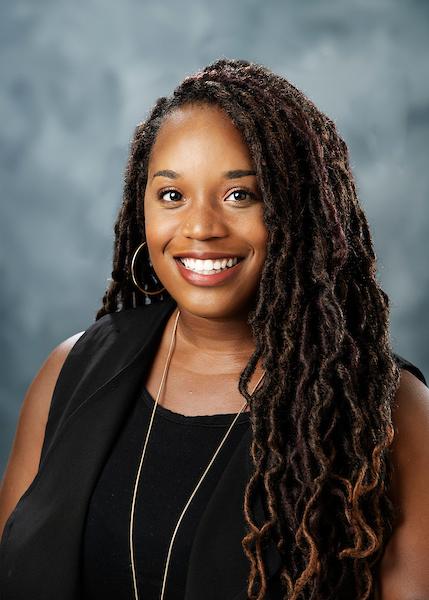Ph.D. student finds passion in educational policy

When New York native Aressa Coley stepped onto the Mississippi State campus as a freshman in 2008, she was an early-admittance pre-veterinarian student set to major in biology. Today, she’s an MSU Ph.D. student working on her dissertation in the Department of Curriculum and Instruction in the College of Education. Coley’s affection for Mississippi State didn’t begin in 2008, however. It began back in high school when she attended the university’s Summer Scholars program, arriving on campus after having attended a science veterinarian camp at Tuskegee University in Alabama. With Tuskegee only a few hours from Starkville, Coley’s mother suggested she attend Summer Scholars at MSU as well.
“I didn’t really know anything about Mississippi, but I had the best time when I attended camp. I still keep in touch with people from Summer Scholars, and it was cool too because I wasn’t the only person that was from far away,” she said.
Summer Scholars was just a jumping off point for Coley’s life in Mississippi. She knew when she had to make a decision about where to attend college she wanted to “go somewhere different,” far from her home in the Northeast. Her parents always encouraged her to go as far away as she wanted, explaining that if she could get there she could get back home.
Mississippi State was where she landed, obtaining her bachelor’s degree in 2012 and making the decision to continue as a graduate student at MSU not in veterinary medicine, but in biology. During her years as a master’s student, she began teaching and fell in love with working with students. While she didn’t know much about education in Mississippi’s public school system, what fascinated her the most about her Biology Lab I students at MSU who had graduated from those secondary schools seemed to have started out in her college-level classes at different levels of knowledge. Also, she knew this was not unique to biology lab students.
“I had some students who had done labs before and were very familiar with practices, and then I had some that had never been able to physically use a microscope before,” she explained.
Realizing that she might need to address each of her students’ needs differently, she began researching how to better support her students in learning science. Coley said learning science is crucial for students because it’s a subject that “bleeds into everyday life.” After talking to Dr. Ryan Walker, an MSU associate professor in curriculum, instruction and special education, she knew she needed more time to educate herself and applied for the university’s curriculum and instruction Ph.D. program with a concentration in secondary education.
Since being accepted into the program, her work has been focused on education policy and trying to enhance students’ education. She has worked with early childhood to adult-learner education.
“I’m really interested in anything that can enhance someone’s educational abilities. Whether it’s coming into a formal learning environment or working with students informally, we need to figure out what set of courses or what set of experiences to construct for them to meet their goals,” Coley said. “To me, that’s fun. That’s challenging. That’s where my passion lies now.”